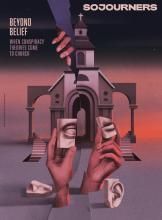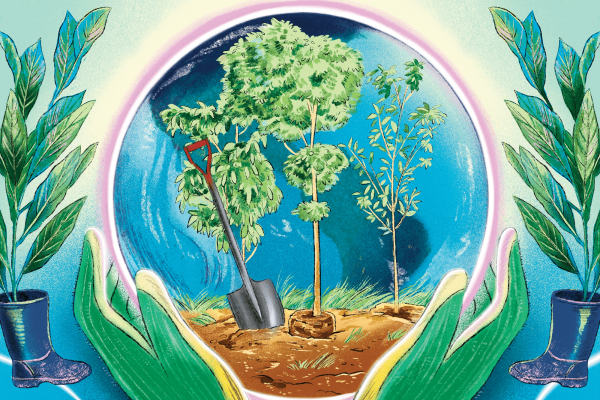DURING THESE LONG months of pandemic, I’ve returned to the 14th century writings of Julian of Norwich, a theologian who lived through seasons of plague as a child. She lost neighbors and loved ones. Later, as an adult, she almost died from a mysterious illness. After her recovery, Julian received visions from God that she wrote down in a book of theological reflections.
God “made everything that is made for love,” Julian writes, “and the same love sustains everything, and shall do so forever.” On page after page of Revelations of Divine Love, Julian dwells on God’s steadfast care for all of creation. She offers—to herself and to her readers—words of comfort and hopeful reassurances (“All shall be well, and all shall be well, and all manner of things shall be well”), while staring clear-eyed at a life of suffering (“all the pains and sufferings of all creatures, both in body and spirit”).
When I can’t sleep, I repeat Julian’s line in my mind. “All shall be well, and all shall be well.” Her words have accompanied me through night after night of pandemic anxieties and despair. Her repetitions (“all shall be well, and all shall be well”) remind me of Psalm 130: “My soul waits for God more than those who watch for the morning, more than those who watch for the morning” (verse 6). We wait and watch for the glow of morning, for redemption’s dawn when all shall be well.
Read the Full Article

